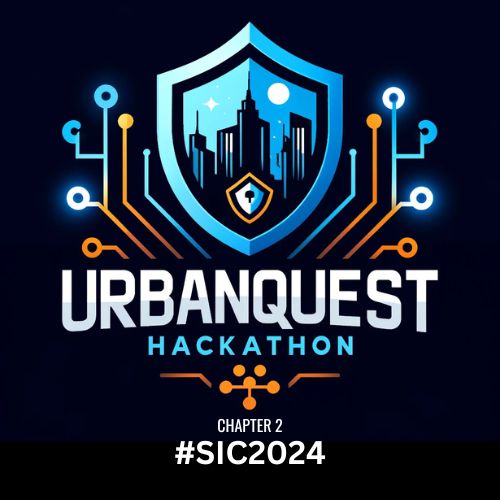

Empowering Safer Neighborhoods, One Code at a Time!




5
Participants

Mar 15, 2025 @ 12:03pm (GMT+05:30) New Delhi

₹ 150,000.00 prizes

Public

Online
Managed by Fablecon
UrbanQuest, the second hackathon in the SmartCity Innovation Challenge series, invites innovators to tackle a critical aspect of urban living: safety. This hackathon challenges participants to design and develop a Community Safety Alert System—a mobile app that empowers neighborhoods to stay informed and secure.
In today’s rapidly evolving urban landscapes, ensuring the safety of our communities is more important than ever. UrbanQuest gives participants the chance to create a tool that can make real-time alerts for emergencies like fires, accidents, or suspicious activities more accessible.
Here’s what you can create:
Why Participate?
The Vision:
UrbanQuest is more than a hackathon; it’s an opportunity to take your coding skills and transform them into a tool that enhances lives. Whether you’re new to development or a seasoned coder, this challenge lets you push your limits while contributing to the well-being of neighborhoods across India.
Are you ready to code for a safer tomorrow? Join us in this exciting journey!
Participants will design and develop a Community Safety Alert System, a mobile app that empowers neighborhoods to stay informed and connected during emergencies. This challenge is tailored to be beginner-friendly and impactful, focusing on solutions that can be implemented without extensive coding knowledge.
In the absence of public safety APIs in India, this challenge emphasizes community-driven and user-centric solutions that leverage creativity and accessible technology.
Participants are tasked with creating a mobile app with the following features:
Participants can add extra features for bonus points, such as:
Participants must submit the following to complete their entry:
Here are some useful resources participants can explore to help them build their projects for the UrbanQuest.
1. APIs and Tools for Development
Use for geolocation and mapping features.
Alternatives: OpenStreetMap or Mapbox
For backend services, real-time database, and authentication.
For SMS and push notifications to alert users in emergencies.
Lightweight JavaScript library for interactive maps.
2. No-Code/Low-Code Platforms (Beginner-Friendly Options)
Build mobile apps without writing code.
Turn Google Sheets into simple apps.
Drag-and-drop platform for building cross-platform apps.
3. Tutorials and Guides
Google Maps API Beginner Tutorial
Geolocation Tutorial by FreeCodeCamp
4. Open-Source Libraries for Features
Socket.IO for real-time data transfer.
5. UX/UI Design Tools
Design app interfaces collaboratively.
Create simple designs and illustrations.
6. Video and Documentation Tools
Record demo videos of your app.
Screen recording with voice-over.
Organize and present your project documentation.
7. Communities and Forums
For programming-related questions and troubleshooting.
Articles and forums for developers.
Join subreddits like r/programming or r/webdev for advice.

Founder & CEO, Fablecon
6 months ago
Dear Participants,
We regret to inform you that due to insufficient participation and a low number of submissions, we have made the difficult decision to cancel this hackathon.
This was not an easy decision for us, as we deeply value the time, creativity, and enthusiasm you bring to these events. Our goal has always been to create an engaging and competitive space for innovation, and we believe it's important to ensure every participant receives the experience they deserve.
To those who have already submitted their projects — Thank You. We truly appreciate your effort. As a token of our gratitude, you will receive:
You’ll receive a separate communication from us shortly with more details on these.
We sincerely apologize for the inconvenience and appreciate your understanding. If you have any questions, feel free to reach out directly — we’re here to help.
All registered participants should receive a formal communication via email shortly. If you have any questions or need assistance, please don’t hesitate to reach out to us directly.
Thank you for being part of our community. We’re learning, growing, and coming back stronger.
Warm regards,
Team Fablecon


Ended

In-person

₹ 5,000

18


Ended

Online

$ 18,000

5673
_1724225085.jpg)

Ended

Online

₹ 135,000

2152